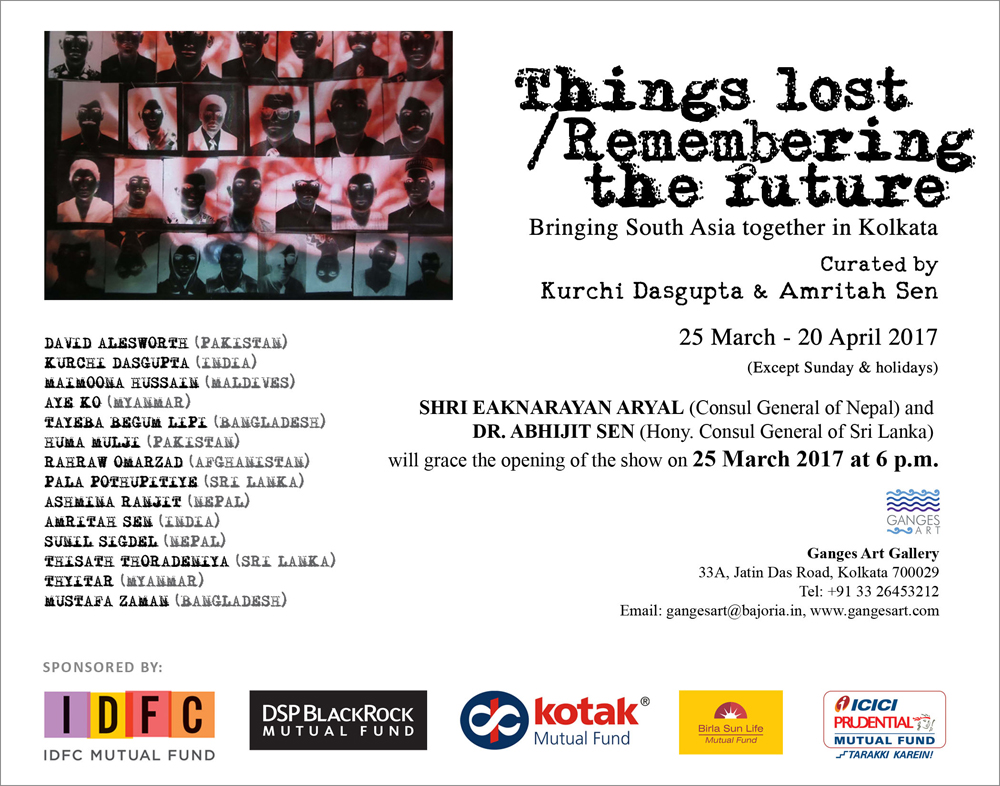Things Lost/Remembering the Future
Things Lost/Remembering the Future is a pan-South Asian exhibition that explores the ideas of loss, being and regeneration through the lens of personal and public memory. The exhibition is the first of a series that hopes to open up new channels of communication, and understanding, of the region’s unique political/historical reality and its cultural sub-texts.
Curated by artists Kurchi Dasgupta and Amritah Sen, Things Lost/Remembering the Future focuses essentially on the small, the forgotten, the mis-represented as opposed to the official and the monumental. It looks upon the present from both the past and the future and investigates the processes through which historical narratives habitually emerge. We hope it will allow an alternative perception of history to spill through, one that links the South Asian experience to the larger, Global South.
This is possibly the first exhibition in Kolkata that brings together 14 artists from 8 South Asian countries (Afghanistan, Bangladesh, India, Maldives, Myanmar, Nepal, Pakistan, Sri Lanka) on one platform. The works were selected with an eye on the unexpected in terms of media and content. Some of the artists are globally established names, some are comparatively new, and a few are fresh graduates. Our one aim was to magnify those rare, incisive voices that are consciously commenting on, critiquing and resisting the xenophobic and gender-biased, mainstream idea of the region’s history. The other was to give space to the forgotten and the personal, hoping this would evolve into an inclusive identity map that differs from the currently available version.
A specific, long term aim is to present rigorously curated shows on the theme in each of the involved countries, facilitating a dedicated exchange between cities and cultures, artists and institutions, ideas and viewers, the loaded present and an anthropocenic future. Bhutan will be taking part in the next edition.
A curatorial note by Kurchi Dasgupta and Amritah Sen
